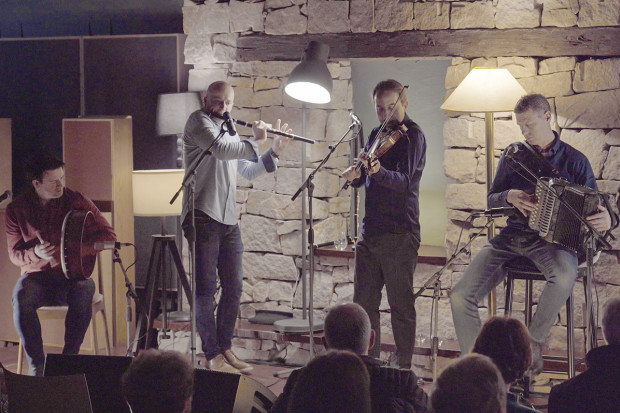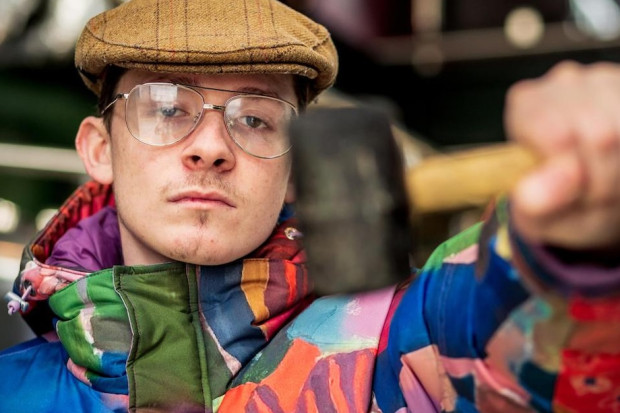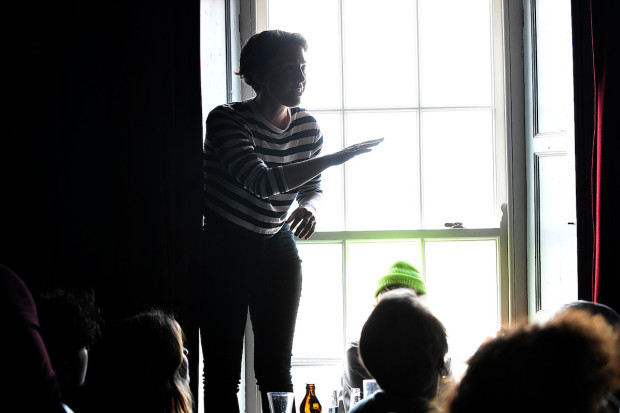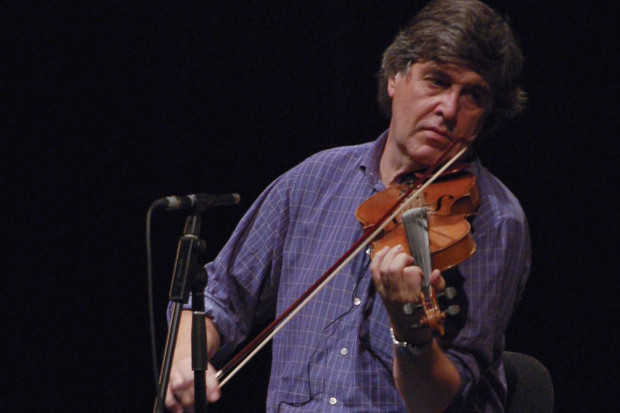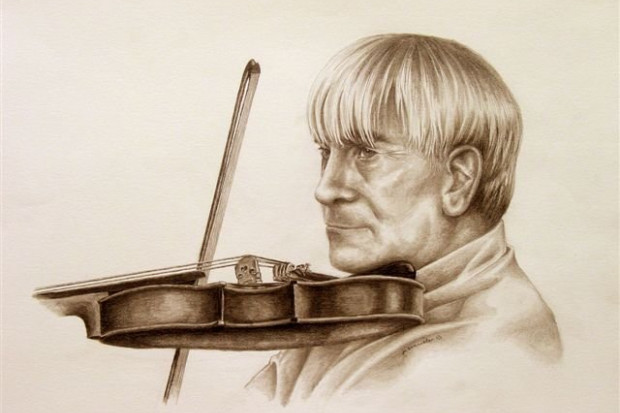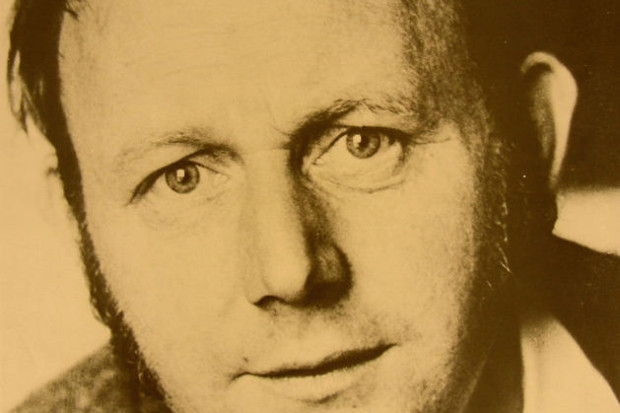Live Reviews: Temple Bar Trad
The last concert of this year’s Temple Bar Trad was promoted from the usual smaller venues to the Olympia Theatre, thanks to the sponsors and to the fact that the occasion was being televised for TG4. The promotion was a mixed blessing, however, as the touch of glamour and the time demands of the television medium did not always sit well with the music and musicians. Our fear a’ tí’s intro, directed at the live audience, was followed by another from a beguilingly begowned Róisín Elsafty, directed at the television viewer.
In the 2006 Temple Bar Trad festival, Tommy Peoples had been given the time to build up some musical momentum and a rapport with the audience. This time round he and his daughter Siobhán had far less time. For whatever reason, the performance failed to excite. They played with obvious mutual understanding – almost too much so: in the first few pieces at least, it was always the sound of two fiddles we got, and though we could catch little differences in ornamentation, we were not given a chance to hear the individual sound of either musician. Then we were offered a rather melancholy suite relating to the Flight of the Earls, which included a narrative of that fateful episode – little influenced, let it be said, by the Roy Foster version of Irish history – penned and sung (in a slightly throaty but affecting fashion) by Peoples himself. And that was it.
Róisín Elsafty then switched from presenter to singer – though not completely: in fact every song was introduced and paraphrased in both English and Irish. This rather unspontaneous and lengthy procedure left some of us at least with the feeling that the concert wasn’t fully ours. Brief bi-lingual introductions were fine, as were paraphrases in English of the songs. However, if linguistic egalitarianism called for paraphrasing in Irish too, this was hardly necessary for Irish-speakers, who would have had little difficulty in following the songs in Elsafty’s crystal-clear enunciation. The singing itself showed once again Elsafty’s command of the repertoire; she was fully herself whether the song was light-hearted or heart-stirring (‘Eleanór a Rún’). Donal Lunny popped aboard for one spot of accompaniment.
There was nothing glamorous about Jackie Daly, his music or his stage-patter, but he and his fellow-musicians – Edel Fox on concertina and Paul de Grae on guitar – provided the most unbroken musical pleasure of the evening. Sliabh Luachra had its say of course in slides and polkas, but we also had jigs and reels and an excursion to Cape Breton. As Daly had no names for some of the tunes and seemed to be re-baptising others, there is little point in listing them. (If necessary, some scholar can reconstitute them from the broadcast.) What mattered was the discretion of the guitar, the sprightliness of the concertina and the unrushed rhythmic kick of the accordion. These musicians could have been playing contentedly together in the corner of a pub in North Cork, but here they were, contentedly demonstrating the value of unflashy, companionable musicianship, in the larger spaces of the Olympia. Could we cancel the main act and let this roll on? The interval came too soon.
What of Mozaik, the main act on the night? They are a fine bunch of musicians: Andy Irvine and Donal Lunny have made wonderful music in numerous formations and configurations; Nikola Parov plays masterfully on everything Bulgarian from the gadulka (a hefty bowed instrument) to the kaval (end-blown flute) via the gajda (bagpipes), but is equally at home on guitar or clarinet; Bruce Molsky plays fiddle, strums and sings in vigorous old-time American style; and Rens van der Zalm plays happily on fiddle, guitar and mandolin. There was plenty to enjoy then, whether we were keening on the banks of the Danube, zipping through Macedonia, hollering in rural America or time-machining back to Planxty days with ‘The Blacksmith’. Quibbles? There are songs that are difficult to evoke without thinking of Irvine’s beautiful renditions of them, but I have never been taken with his own sweet memory-songs. There was also a certain inevitability to some of the arrangements. After the field holler, we had a few moments of clearly audible and enjoyable fiddling – but not for long: in came the Lunny strum and yet once more we were invited to the mechanical excitement of the massed strum-strum-strum rush to the end. Having thrilled to the Bothy Band strum all those years ago, I now find it difficult to work up any excitement as the same procedure has been repeated by group after group down the decades. With so much musicianship on stage, I found myself thinking of the concert we could have if these fellows would adopt the Jackie Daly approach and let the music talk. I should add that most of the audience were less curmudgeonly, as shown by the whooping and loud applause all around the Olympia.
Published on 1 March 2008
Barra Ó Séaghdha is a writer on cultural politics, literature and music.










